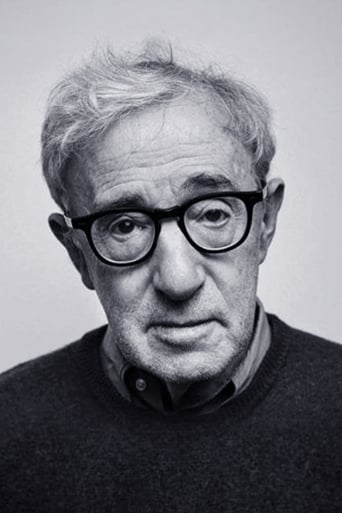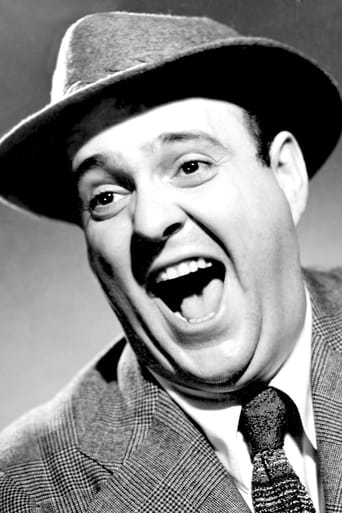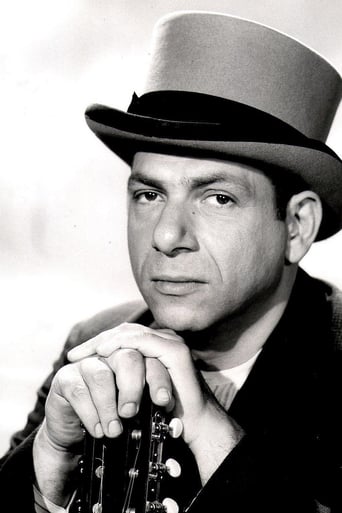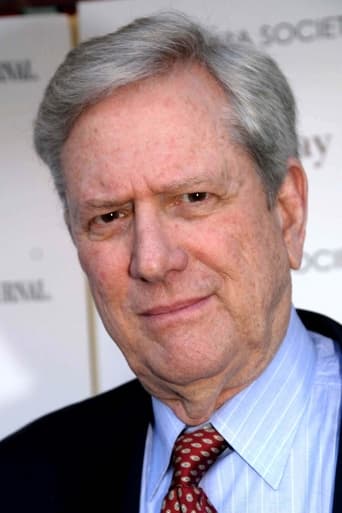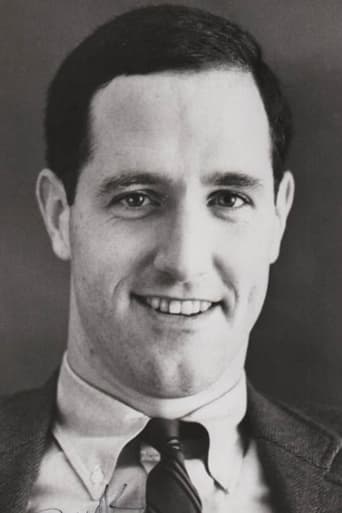tieman64
Martin Ritt, once blacklisted during the height of the Red Scare, directs "The Front". The plot? Woody Allen plays Howard Prince, a small-time bookie who has a blacklisted friend who once wrote for television. Seeking to make easy cash, Prince agrees to publish his buddy's scripts under his own, untainted name. When this scheme proves successful, Prince takes it upon himself to publish the scripts of countless other blacklisted writers. Much hilarity ensues.Though based on a very original and very interesting premise, "The Front" wastes most of its good ideas and trivialises an important period of history. The blacklist years weren't just a quirky little overreaction on the part of the United States, but a massive, bloody form of class warfare designed to eradicate any and all free thought and destroy any revolutionary or reformist movements that had the potential to impinge upon corporate profits. On one end of the spectrum, countless "soft" purges in the political and cultural fields were embarked upon. On the other end, the US government, CIA and (primarily) Britain would spend the next 90 years massacring left-wing movements, murdering democratically elected leaders and sponsoring coups against the heads of over 80 countries. These were not "quirky overreactions", but a clandestine war in which anything opposing Western capitalist interests was systematically destroyed. Often, whole political parties were removed by force or subversion, or factions and puppet dictators were armed to overthrow democratically elected political leaders, most of whom weren't "commies" but rather simply attempting to introduce reforms, egalitarian measures or nationalise resources. In the modern era, this all started with the massacres committed against the Indonesian independent movements (1898-1914 – over half a million civilian deaths). From 1903-1936, Panama, Haiti and Nicaragua became bloody, defacto US Colonial holdings, whilst the US began supporting the White Rebels and the Tsars/aristocracy during the Russian Civil War. In the 1940s, right-wing dictators were backed in the Philippines, Peru, Ukraine, Syria (Colonel Al-Zaim's dictatorship), Albania, South Korea, and Italy (the CIA bought every Italian election from 1948-76), with local democratic elections subverted and left-wing politicians/movements murdered. President Lyndon Johnson's "F**k your parliament and your constitution", uttered to Greek ambassadors, sums up US policy during this period. Coups in Greece were sponsored in 1949, 1967 and 1973, with US backed dictatorships running for a ten year period. Meanwhile, US sponsorship of the Kai-Shek family in China leads to some 18 million deaths. In the 1950s, the nationalising of resources leads to similar coups in Iran. Same story in Guatemala, Albania, Poland, Lebanon, Jordan, Guyana, Hungary, Oman, Portugal, Haiti, Taiwan, Cuba (the CIA overthrows Socorras and puts in place Batista), Costa Rica, Jamaica, Bolivia, Dominican Republic and Ecuador. In Pakistan, the US supports General Yahya and his genocide. In 1971 it puts the genocidal Idi Amin in power of Uganda. In Puerto Rico, independence movements were violently crushed. From 1950 to 75, the US supports fascist dictators in Spain. In Laos, one coup a year was instigated by the CIA for almost 2 decades. In 1961, the first democratically elected leader of Congo was assassinated by the CIA. Similar coups were spearheaded in Brazil, Honduras, Fiji, Columbia, the Balkans, Romania, Liberia, Turkey, Dominican Reublic, Uruguay, Bolivia and Indonesia. In Vietnam, the 1952 Saigon bombings were faked and blamed on "terrorist communists" to justify US intervention. About 5 million south east Asians would die in that "conflict", 40,000 to the CIA's assassination programme, Phoenix. Elsewhere the US supports dictators in Saudi Arabia and Egypt, installs dictator Kamuza Banda in Malawi and starts copious coups in Ghana. In 1968 the CIA began Operation Chaos, which spied on unions, radicals and disrupted campuses. It would eventually spy on over 1000 organisations. In 1970 the CIA installs a puppet in Cambodia and indirectly causes the Khmer Rouge massacres (they sponsor Pol Potists with 89 million). Leftist and socialist Presidents in Bolivia and Chile are overthrown and replaced with dictators. From 1962 onwards, the US sponsors pro apartheid movements in South Africa, and engages in proxy wars in Angola, Lesotho, Chad, Surinam, Mozambique, Seychelles, Namibia, Kenya, Sudan, Zimbabwe, Somalia, Ethiopia and many more African countries. In 1975, the CIA and Britain overthrow the left leaning government of Australia, whilst backing brutal dictators in Angola. In the late 1970s, they arm psychos to fight off reformists in Afghanistan, El Salvador, Nicaragua, Honduras, Panama and Iran, and back Indonesia's invasion of and massacres in East Timor. Between 1978-89, the people of Nicaragua were under attack by Washington's proxy army, the Contras. Grenada was invaded for similar reasons whilst Operation Condor removed the last vestiges of left leaning movements in Latin America. Actions against Panama, Bosnia, Venezuela, Croatia, Yugoslavia (Serbia/Kosovo) and Libya follow, then Iraq, home of CIA asset Saddam Hussein. And on and on it goes.The point? The CIA functioned as a magnified mirror image of the global "conspiracy" it imagined exited everywhere. The CIA ended up controlling/owning numerous academic journals, publishing houses and media assets (ABC, NBC, CBS, Time, Newsweek, Associated Press, United Press, Reuters, Hearst Newspapers, Scripps-Howard, Washington Post etc) and operated fronts in universities, particularly Harvard and Colombia (anyone with communist ties was banned from the schools). Elsewhere it would engage in many black ops movements, like Cointelpro, Operation Chaos, Operation Mockingbird, Prism, Echelon and others exposed by the House Pike Report and Church Committee. The CIA rationalised these actions as part of its "war against communism", but almost none of these countries had contacts with communists or the Societ Union, and US actions began before the Russia Civil War even began. CIA analyst David MacMichael would detail how the CIA oft fabricated these target countries' ties to Russia. Between 1775 and 2008, the US military has been utilised unconscionably 776 times (216 domestic, 560 foreign); three and a half times a year to preserve the American Way Of Life.7/10 – Wastes a good premise.


